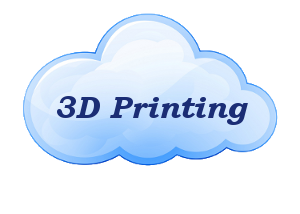R&D Tax Savers has saved clients millions through Research and Development Tax Credits.

Selected 3D Printing Articles
3D Printing

Selected CleanTech Articles
CleanTech

Selected Design Articles
Design

Selected Food Science Articles
Food Science

Selected Life Sciences Articles
Life Sciences

Selected Manufacturing Articles
Manufacturing

Selected Materials Articles
Materials

Selected Regional Articles
Regional

Selected Robot Articles
Robots

Selected Software Articles
Software
| March 2023 |
News |
| May 2022 |
News |
| March 2022 | RDTS Publishing publishes one of our latest R&D articles The R&D Tax Credit: Helping Businesses in Ohio Succeed. |
| February 2022 | RDTS Publishing publishes one of our latest R&D articles The R&D Tax Credit: Helping Businesses in Florida Succeed. |
| March 2021 | RDTS Publishing publishes one of our latest R&D articles The R&D Tax Credit Aspects of Colorado Innovation. |
The Research and Development Tax Credit (IRC Section 41) is one of the most substantial incentives under current U.S. tax law because,
unlike a standard deduction, it is a dollar-for-dollar credit against your tax liability. Depending on your company's qualified
research expenses, the credit can include eligible wages, supplies, and outside contractor expenses. This federal tax incentive
is available in over 30 states. In addition, the R&D Tax Credit is available for all open tax returns, which usually includes up to 3
previous years and the current tax year. In the case of insufficient lax liability, firms may have the option to carry the credit
forward 20 years.
The common misconception about the R&D Tax Credit is that it is solely for traditional, white lab-coat activities and manufacturers. Recent legislation has broadened the industries and companies that qualify for the credit. Common R&D eligible activities include:
Despite the tremendous tax opportunity, most eligible companies (more than 65%) are unaware or fail to take full advantage of the generous R&D Tax Credit. Companies, large and small, in a broad range of industries, often overlook research expenses in their field, due to misconceptions about common activities that qualify. Our experts understand that the Research Tax Credit is not limited to traditional white lab-coat activities or manufacturing, and can use our streamlined process to extract the full potential of your company's R&D opportunities. If your company is involved in any type of research, development, or improvement of new or existing products, processes, formulations, or software your company likely qualifies. R&D Tax Savers can help you quantify and defend your R&D Tax Credit.
R&D Tax Savers specialists include attorneys, CPAs, engineers, and IRS enrolled agents that provide unparalleled expertise in order to substantiate the maximum tax credit for your company and ensure its defense. We perform complimentary assessments of your innovative activities to demonstrate the potential credits, present and past. Our streamlined, turn-key process explores the fundamental R&D activities of your business on a project by project basis, which will optimize your savings with minimal time investment from your employees. Our focus on the quantitative and qualitative aspects of your R&D will improve your company's internal procedures, resulting in simpler, stronger R&D claims.
Our goal at R&D Tax Savers is to pursue the tremendous tax incentives for any company that invests in the development of new or
improved products, processes, and services. Our experts have captured millions of dollars of tax savings in various industries,
from biotech startups and medical manufactures, architecture and engineering firms, to nutritional product and food producers. Our streamlined turn-key process not only maximizes
your financial benefits now, but also encourages procedures to promote simpler, and stronger tax credit claims for the future.
Since its adoption in 1981, the R&D Tax Credit has been a significant tool to promote domestic innovation and maximize the
bottom line of companies across a wide spectrum of industries. Over the past 30 years, the credit has evolved constantly through
legislation and treasury regulations which have developed into 3 pronounced phases, Adoption, Redefinition, and
Examination. Our expertise and understanding of the history of the Research Tax Credit allow us a better approach and refined process
in order to capture the maximum savings and required documentation for your company.
R&D Tax Savers stays up to date on the issues and resolutions in R&D case law. In extreme situations, audit appeals can result in cases filed with the U.S. Tax Court.
Through this process, the court further interprets and clarifies the rules and regulations regarding the R&D Tax Credit. Specific rulings can effectively change how the tax credit is handled by companies and the IRS.
By understanding the details and requirements that the IRS emphasizes, we can create simpler, yet stronger
claims and maximize your savings.